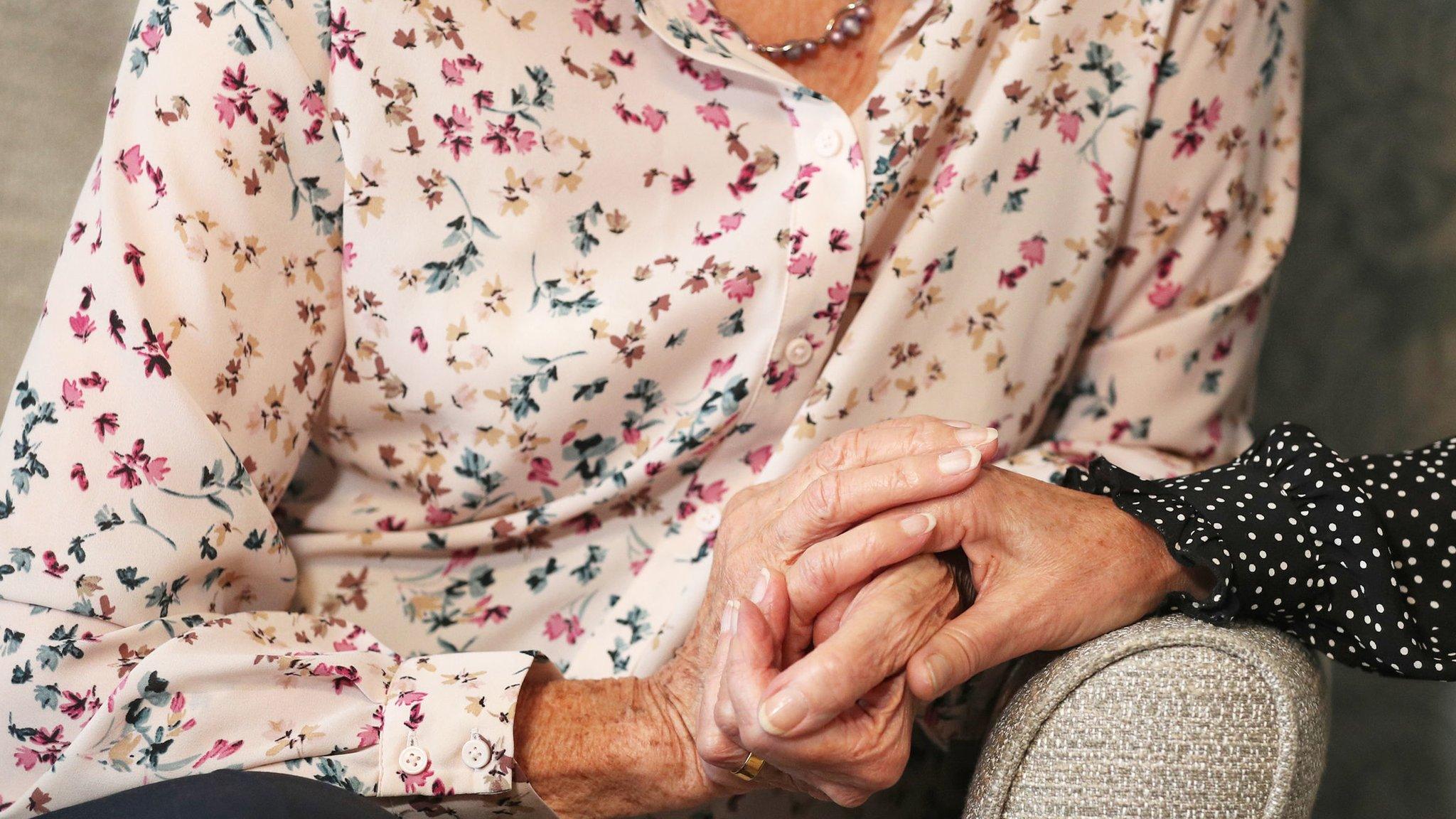Supporting those with dementia over Christmas

People experience the condition differently so be prepared to be flexible and facilitate these changes
- Published
Two nurses who specialise in dementia care in Guernsey have made suggestions on how to support and make Christmas easier for those living with the condition.
Suggestions include hanging up decorations gradually rather than all at once to avoid confusion and keeping decorations simple.
Colette Bonner and Michelle Martel, Guernsey’s dementia specialist nurses also suggest having a room for people to go to if they feel overstimulated with the number of guests and noise in the house.
They said Christmas could be stressful for those with dementia due to rapid changes in day-to-day life.
'Sensory overload'
Ms Bonner said: "We can reduce distressed reactions with thought and preparation and respond using positive dementia skills."
“It is common to hear the phrase that people with dementia have ‘challenging behaviour’ but it is a distressed reaction and usually caused by their inability to process what is going on around them.
“As with any aspect of dementia, keeping a routine is important to promoting wellbeing and calmness."
Ms Bonner, who has nursed in care of the elderly for more than 35 years in the UK and Europe, added: "During the month of December in particular, there are many changes taking place which can break away from this and induce a sensory overload.”
'Turns to frustration'
Mrs Martel, who is a mental health nurse with substantial experience in dementia care, said: “The most important things to monitor are the amount of interactions compared to the usual routine.
"Cousins, children, aunts and uncles, family from off-island suddenly appearing, friends, neighbours, there can be a significant increase in faces, conversations, house visits, excited children to name but some.
"While some people with dementia may embrace the moments and respond positively to the atmosphere of excitement and joy, others may find the constant changes of routine and the house visits, and trying to remember who is who a struggle, which quickly turns to frustration.”
Everyone with the condition responds differently, so it is important to be patient and flexible with their needs, the pair added.
If you are affected by issues raised in this article, help and support is available via the BBC Action Line
Follow BBC Guernsey on X (formerly Twitter), external and Facebook, external. Send your story ideas to channel.islands@bbc.co.uk, external.
- Published5 December 2023

- Published23 October 2023
